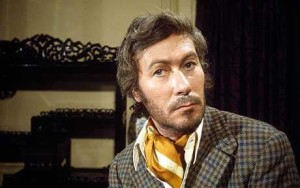This typed memorial appreciation fell out of a small Book of Common Prayer. It is a model of its kind and worth preserving. The little prayer book was from the library of the playwright John Osborne (1929 - 1994) and probably belonged to the parents of his fourth wife Helen Dawson, who had connections in the Sunderland area. Osborne himself, on the evidence of the books, was a churchgoer in later life and on at least one occasion read the lesson in his local church. This piece commemorates John Hall Robinson, a businessman and Methodist preacher who was probably born in the 1860s.
Rev. W. Foster Elves,
48, Otto Terrace,
Sunderland.
An appreciation of Mr. J. H. Robinson delivered in Ewesley Road Methodist Church on Wednesday, December 9th 1942.

It is my high privilege, though my sad duty to pay testimony to the life and influence of John Hall Robinson. I must not take up much time, not that his memory does not warrant it but because he himself would not have wished it. That was his way. He did his work with devotion and love and found his satisfaction, not in the praise of men though that was given, but in the memory of a task completed as best he could.
It is not for me to speak of the uprightness and zeal that he brought to his business life. Men who met him in his office, men who had commercial dealings with him will witness to and remember those qualities. They have said that he was as straight as a dye, honest even to the smallest detail and, only yesterday a traveller said to me, "it was a pleasure to have dealings with him". I do not think any higher tribute could be paid to a man's character than that.
It was with his spiritual life that I was more intimate, though in him it was difficult to discern where his business life ended and the spiritual began. He brought to the one the inspiration and the guidance of the other.
In his youth Mr Robinson was an athlete of considerable skill - into his Christian life he brought some of his athletic prowess. There was a quiet robustness about him one felt, a reserve of strength, a confidence in his faith and a readiness to stand firmly for his principles. He never lost his youthful spirit and one reason that we feel his loss so keenly is that we were never able to realise he was more than 70 years of age.
For 31 years he was a Methodist Local Preacher. His visits to the churches well welcomed. He was fearless in his denunciations but generous in his praises, he had no time for the half-hearted but would spare neither time nor energy to help those finding life difficult.
Sunderland Methodism will miss him sorely. How then shall I describe the loss sustained at King's Hall? The church in which he was to all a big brother, the church in which, with distinction he was class-leader, choirmaster, brotherhood official, and trustee. But he is not lost - John Robinson cannot die for those who knew him - we have him still, an inspiration and a help. He will be for us, in that little church, always a man of tenderness, a large sympathy, a sweet and gracious courtesy infinitely attractive and endearing.
To Mrs Robinson and her family we give our sympathy, sympathy too deep and sacred for words. We share with you your loss. We do for you all that we can do, we commend you to the care of Him whom your loved one loved and served so faithfully.
John Hall Robinson, we thank God for every remembrance of you, may we be worthy of knowing you and loving you. John Robinson, "Well done!".
 Found, a letter dated 6th December 1990 from someone called Rudi to the playwright John Osborne, whom he addresses as ‘ Colonel’, presumably a reference to Colonel Redl, the protagonist of Osborne’s controversial play A Patriot For Me (1965).
Found, a letter dated 6th December 1990 from someone called Rudi to the playwright John Osborne, whom he addresses as ‘ Colonel’, presumably a reference to Colonel Redl, the protagonist of Osborne’s controversial play A Patriot For Me (1965).




